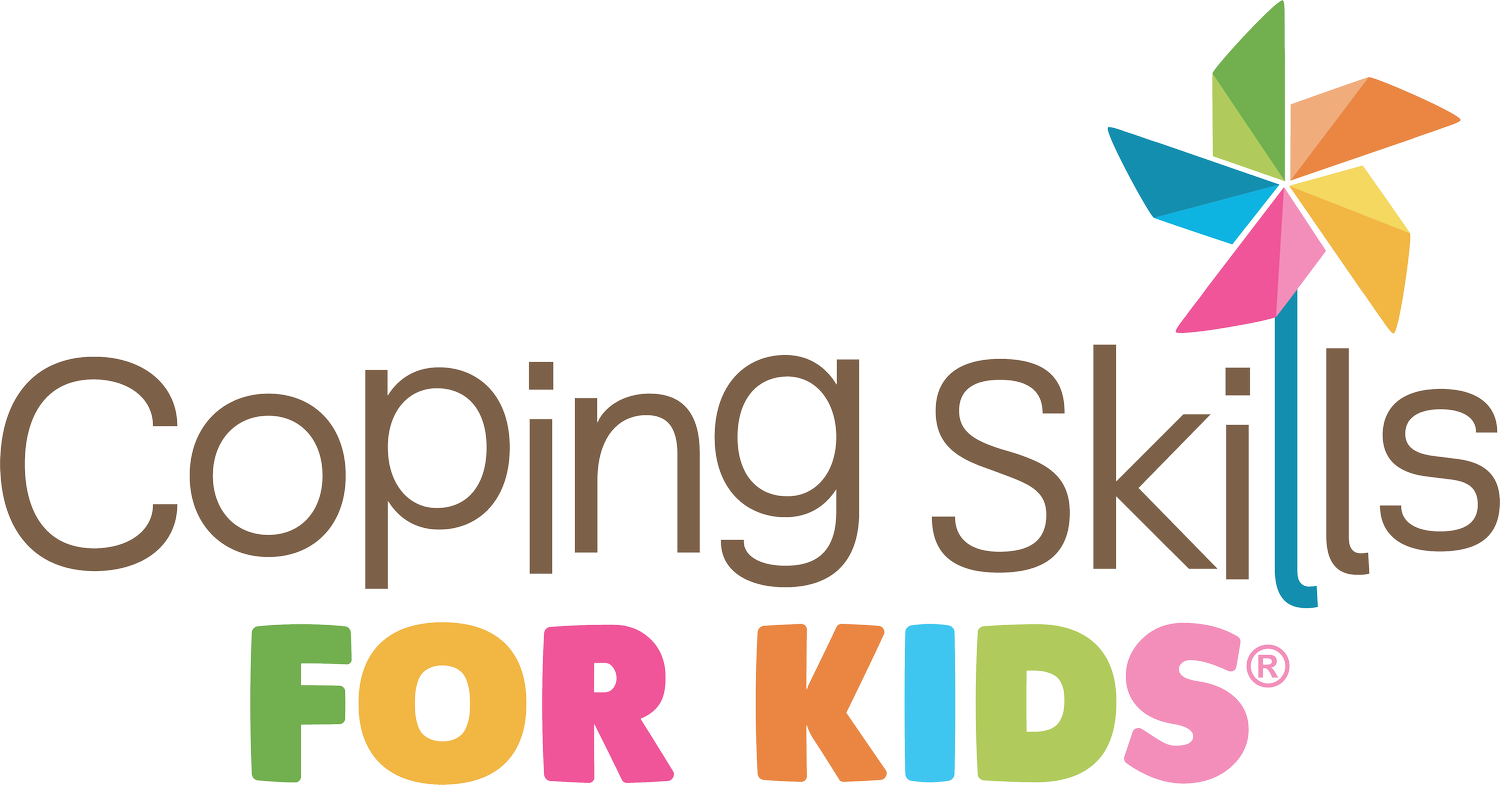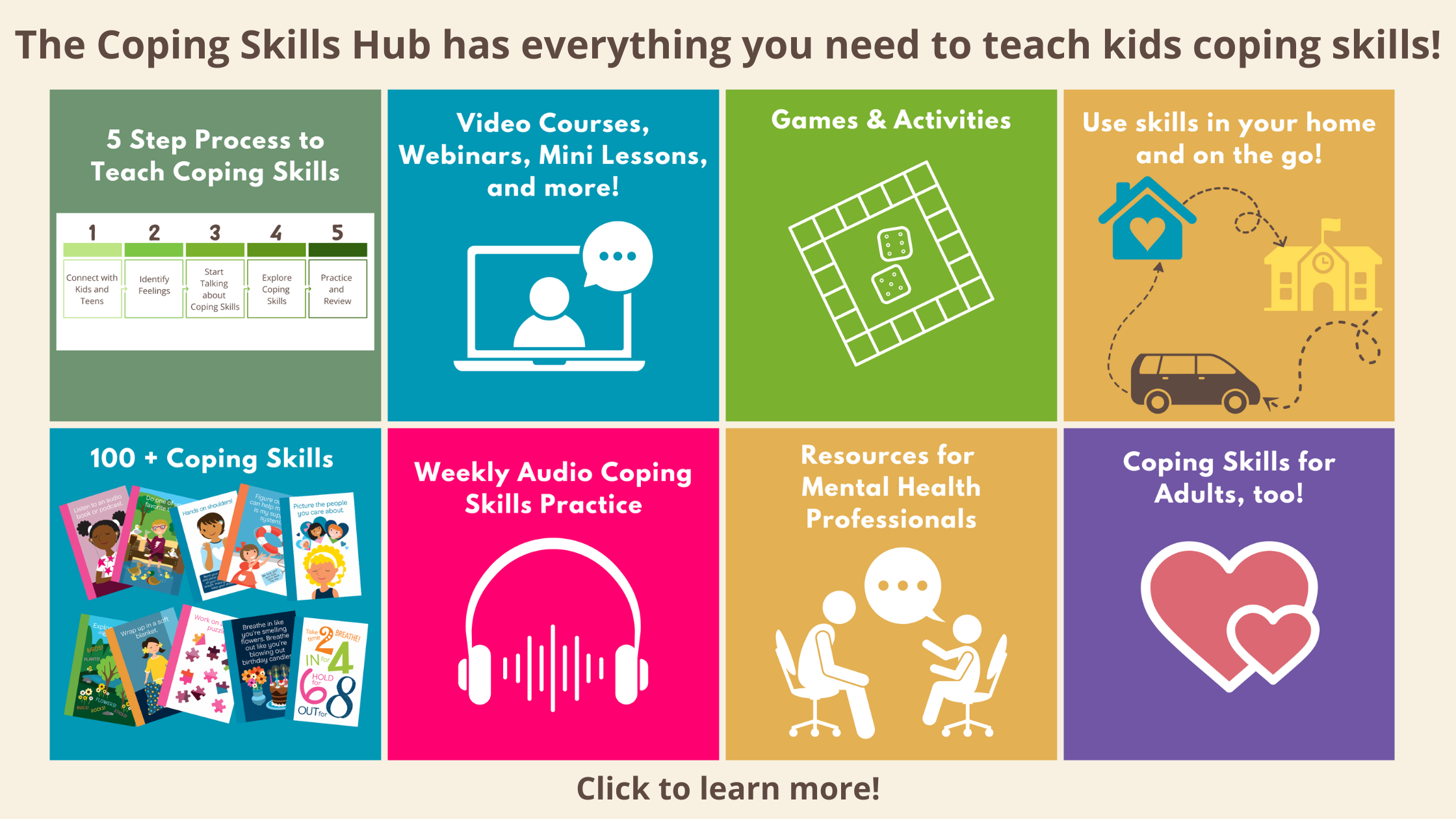An e-course to help you teach coping skills to kids.
Please note: this course doesn’t qualify for NBCC hours
A central aim of any society should be that its children enjoy their lives and acquire the skills necessary to become happy, functioning adults. For this, they need to develop emotional buoyancy, coping skills, resilience and the ability to form constructive social relationships.
-World Happiness Report, 2015
When you have children, your goal is to help them learn and grow into productive members of society. Recently, you’ve started to notice that your child is getting....
frustrated
anxious
worried
angry
overwhelmed
And they don’t know what to do! Many kids are finding it hard to cope with feelings and expressing those feelings in healthy ways. And you are trying to figure out different ways to help them.
So what can you do?
You can teach your kids coping skills. You can create champions who can identify and manage their big feelings.
But how do you do this?
In the middle of a melt down is no time to figure out coping skills.
In this course you’ll learn how to teach kids coping skills. The course presents ideas for exploring what coping skills kids already have and ways to figure out ones they can try. You’ll also learn ways to encourage kids to use these skills when they are needed.
To make learning about feelings and teaching coping skills to kids easy to start at home, there's an e-book of family activities with the necessary printables that you need to get started. This would be perfect for elementary school aged kids.
While there are some resources in this course that you can find in the Coping Skills for Kids Workbook, there are others that are only available here. Resources available only in this course will be indicated by an asterisk *
In Lesson 1, we take a look at the research about how kids are feeling these days. We talk about the importance of teaching kids about feelings. If we can be proactive and preventative, that’s so helpful for all kids!
Lesson 1 Resources:
Family Activities e-book*
In Lesson 2, we review what coping skills are, how to identify what coping skills kids already have, and how to build upon those coping skills.
Lesson 2 Resources:
Feelings Questions*
Coping Skills Checklist
Skills to Try
My Coping Skills
When do challenging behaviors occur?*
In Lesson 3, we focus on different types of coping skills. First, we focus on skills designed to help kids calm down. We look at how much breathing matters, and several ways to have kids try those skills. We also look at several other tried and true ways to help kids relax.
Lesson 3 Resources:
Make a calming jar printable*
Deep breathing printables
Deep Breathing Craft*
54321 Grounding Technique
In Lesson 4, we focus on physical coping skills - skills designed to get out all that extra energy that comes with big feelings. We talk about small body movements (like squeezing dough) and big body movements (like wall push ups or jumping jacks)
Lesson 4 Resources:
DIY Recipes for play dough, oobleck, moon sand and cloud clay*
Make a homemade stress ball
Lesson 5 focuses on distraction coping skills. There are times when kids experience stressful situations that are out of their control; or they have been perseverating on a worry or fear. They need skills that can distract them so they can focus on what they need to do.
Lesson 5 Resources:
Social Stages of Play infographic*
Play Types infographic*
What’s your play personality infographic*
Lessons 6 & 7 are all about processing feelings. We look at helping kids understand and identify their feelings, then expressing those feelings through healthy channels.
Lesson 6 & 7 Resources:
Web of Feelings printable*
Family feelings check in printable*
Track my feelings*
Feelings Thermometer
Where do I feel things in my body
Worry scale 1 - 10 with blank notes* (blank notes not included in workbook)
Lesson 8 focuses on implementation at home, starting with setting up a calm down spot and creating a coping skills toolkit for home and on the go. There’s a ton of ideas for books, fidgets, and games you can keep on hand to help teach coping skills to kids. There's also a section to help you manage when your child is in a crisis.
Lesson 8 Resources:
Family Schedule Template*
Blank Cue Cards
We can’t forget about taking care of ourselves! Lesson 9 is focused on self-care. We are role models for the kids in our lives, and we need to show that we use coping skills too!
Lesson 9 Resources:
To Do List*
Want to take the course?


